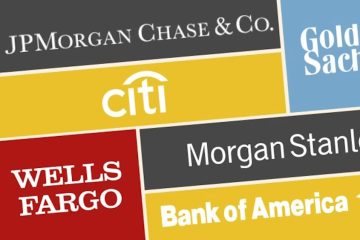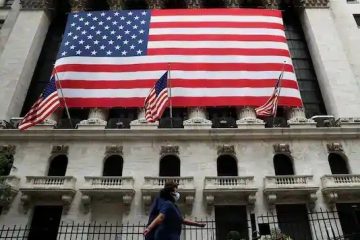Here’s Why Critics Think Changes to the ‘Volcker Rule’ Could Increase Risk and Leave Taxpayers Bailing Out Banks

After big banks received a bailout during the Great Recession (with taxpayer money) one guardrail that followed was increased regulation. Part of the overall Dodd-Frank regulatory framework was the Volcker Rule, which put boundaries on types of risky transactions banks could undertake. After years of bank lobbying, two regulatory bodies out of a necessary five last week agreed to a set of changes that would soften the rule. The other three look ready to agree, potentially removing important limits on the types of risk banks can take, critics say.
The Volcker Rule’s intent was to protect taxpayers. “Depository institutions [like consumer banks] are very much under the safety net of the government,” said Andrew Metrick, a professor of finance and management at Yale and director of the university’s Program on Financial Stability who served in the Obama administration on the staff that created the Volcker Rule.
The Federal Deposit Insurance Corporation (FDIC) sticker on your bank’s glass door indicates government insurance that protects up to $ 250,000 of your deposits. Because it’s a federal program, taxpayers provide the protection. When a bank speculates and loses big, it can involve depositors’ funds and, ultimately, FDIC insurance payments to them. Washington Mutual became insolvent in 2008 because customers became worried over reported trading activity, pulled $ 16 billion from deposits over a 10-day period, and left the bank unable to operate. The FDIC stepped in.
“If I [am a bank and] get spooked and think Bank A is starting to have problems, I’ll stop lending to it,” said banking regulation consultant Mayra Rodriguez Valladares. “Others will find out and the next thing you know, that bank is over. That’s why it’s so important that banks don’t take on excessive risk.”
Banks object
One activity that helped bring on the economic collapse was reckless investments in byzantine financial instruments called derivatives. A derivative is a contract between two parties. One is is obligated to pay the other, depending on triggers of various financial assets, like the value of a stock price or whether a company defaults on a bond it issues. Derivatives often help companies hedge future losses. For example, airlines use derivatives to lock in future fuel prices.
Banks also use derivatives to offset such things as swings in interest or currency exchange rates, or even help customers engage in derivatives trading. The banks can also speculate to increase profits, called “prop” (for proprietary) trading.
The Volcker Rule tried to ensure that prop trading could not ultimately rely on FDIC insured deposits as insulation against risky decisions and losses. Many types of derivative trading became forbidden. But because the difference between prop and other trading could be difficult to discern, the rule was complicated. In its final form in 2014, the rule was 71 pages long accompanied by 900 pages of explanations.
The banking industry immediately objected and kept doing so. In 2018, the Trump administration—which had publicly expressed its dislike of regulation—suggested the first modifications. The FDIC and another regulator with power over banks, the Office of the Comptroller of the Currency (OCC), have now both approved an extensive set of changes. Three other bank regulators—the Federal Reserve, the Securities and Exchange Commission, and the Commodity Futures Trading Commission—are expected to do so in the near future, which will alter the Volcker Rule.
Critics worry
Martin Gruenberg, the only member of the FDIC to oppose the new rules, created a chart, shown below, to show how much prop trading would be covered under the new rules.
The change is significant, cutting hundreds of billions of activity from regulatory cover and opening the door to more.
Many in the industry think worries are unnecessary and the changes, useful. “The changes to the Volcker Rules provide three very important things to banks,” said Thomas Ko, a partner with law firm Stroock & Stroock & Lavan and an expert in banking law. “It reduces ambiguity. It tailors the Volcker rule to the size and complexity of the institution [and lightens the burden on smaller banks]. Lastly, it increases transparency [to the regulators and banks].”
“I think the [original] rule oversteps in a lot of ways and was very onerous on a lot of banks [when] it didn’t need to be,” said Joe Sergienko, director of banking, insurance, and capital markets at management consulting firm Navigant Consulting.
Not everyone agrees. Banks are full of “traders under a lot of pressure to make more money,” said Valladares. Low and even negative interest rates will make profits harder to find. “Lots of different securities and derivatives will no longer be covered. This will have traders take on more risk. In combination with a very tired economic expansion … I think the timing is terrible.” Even Sergienko, who is in favor of the changes, said of Gruenberg’s analysis, “The chart jumps off the page. His statement rang very true about how much is not covered and that concerns me.”
In a written statement at the time of the FDIC’s vote, Gruenberg explained his opposition, saying it would “effectively undo the Volcker Rule prohibition on proprietary trading by severely narrowing the scope of financial instruments subject to the Volcker Rule.”
“If you leave the decision to the banks to say if it’s a prop trade or not, it looks like the American Bankers Association is saying, ‘Trust us,'” said Kurt Schacht, managing director of standards and advocacy for the CFA Institute. “And the question is, should we?”
More must-read stories from Fortune:
—A rare tech company where women dominate
—Why WeWork won’t be in the S&P 500 after its IPO
—Is it “only human” to feel anxious about money? Talking finance with Sophia the Robot
—Europe’s cyber watchdog for banks has a problem—it keeps getting hacked
—Listen to our audio briefing, Fortune 500 Daily





